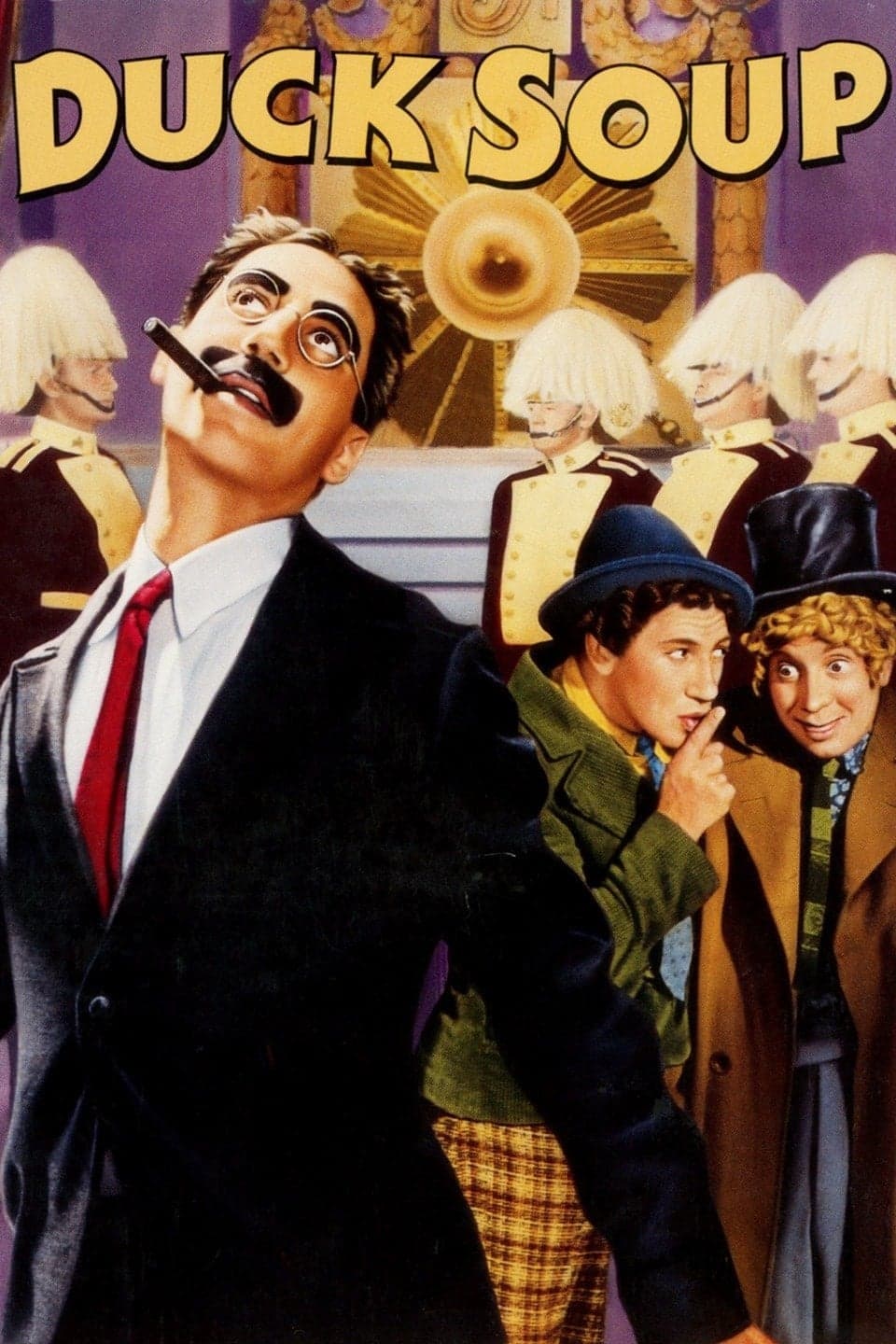
Duck Soup
1933
Rate this movie
Average: 0.00 / 5
(0 votes)
Director
The original title is "Duck Soup," but the Italian distributor's meddling once again distorts the work with a title completely divorced from the subtle irony of the original. "Duck Soup," an American slang expression indicating something unusually easy to do or deal with – essentially, a "cakewalk" – here takes on the contours of a supreme mockery, foreshadowing the chaotic simplicity with which the Marxes demolish every pretense of order and meaning. It is a boisterous, irreverent, debilitating, irritating, sarcastic, parodic film. In a word: a Marx Brothers film. A work that offers no respite through a universe of nonsense and irreverence. The Marx Brothers, with their anarchic and transgressive humor, demolish every convention and authority, targeting politics, war, and bourgeois society. The film, directed by Leo McCarey, is a concentrated blend of visual and verbal gags, surreal situations, and eccentric characters, creating a whirlwind of irresistible comedy.
McCarey, a master at structuring explosive comedic personalities, found himself here having to rein in (or, more precisely, to unleash) the pure anarchic essence of the four brothers. His direction, while lending some cohesion to the disorder, accentuates rather than dilutes the destructive impetus of their comedy, making "Duck Soup" their boldest manifesto and probably their purest masterpiece. The protagonists, with their verbal and visual humor, represent a unique phenomenon in the history of comedy. Groucho, with his sardonic quips and ever-lit cigar, acts as the verbal focal point of the chaos, a dandy of linguistic deconstruction. Harpo, with his surreal mime and his harp, embodies the most unexpected and poetic visual element, a Pierrot of pandemonium who emerges from silence for actions of unheard-of idiocy or unexpected grace. Chico, with his macaronic Italian accent and his distorted logic, is the bridge between Harpo's pure nonsense and Groucho's verbal satire, a catalyst for misunderstandings and wordplay. And Zeppo, with his role as sardonic straight man and naïve lover, represents the last glimmer of normality that is inevitably swept away. Together, they create a bizarre platoon of unforgettable characters, in perpetual contrast with the fifth, irreplaceable honorary sister: the majestic Margaret Dumont. She is the very personification of the bourgeois establishment, the perfect victim, the aristocratic matriarch who, with her imperturbable dignity and her almost heroic stoicism in the face of Groucho's incessant humiliations, becomes herself a comedic figure of monumental stature. Her presence is the anchor that prevents the Marxian madness from dispersing into mere delirium, offering a point of reference against which to measure the abyss of their irreverence.
The story revolves around the unlikely dictator of an unlikely state; Rufus T. Firefly is, in fact, the undisputed leader of Freedonia. Rufus, played by Groucho, with his arrogance, incompetence, and disorienting humor, leads the country to war against neighboring Sylvania. The film is a succession of absurd and paradoxical situations, in which the Marx Brothers delight in mocking politics, war, diplomacy, and justice. Their lightning-fast quips, their disguises, their physical gags – such as the highly celebrated mirror scene, a masterpiece of visual coordination and comedic brilliance where Harpo and Groucho switch places creating a perfect illusion and a crescendo of laughter – create a frenetic and engaging rhythm that drags the spectator into a world of madness and hilarity. The plot, if one can speak of a plot, is a mere pretext, a framework within which the actors can unleash their genius for chaos, disregarding every narrative and logical expectation.
Duck Soup was released in 1933, during a period of great economic crisis and growing international tensions. The film, with its political satire and its parody of war, can be read as a critique of authoritarianism and militarism, which were taking hold in Europe. In an era when totalitarianisms in Italy, Germany, and the Soviet Union were consolidating their power, and the threat of a new world conflict loomed darkly, the Marxes' irreverence was perceived by some as excessive, almost blasphemous. Its initial reception was indeed lukewarm, not matching the success of previous films, perhaps because reality surpassed even their wildest fantasies, or because the public was not yet ready for such corrosive and disillusioned satire on the horror of war and the emptiness of power.
The Deus ex Machina of the film is, without a doubt, Groucho Marx. Groucho is an undisputed master of nonsense, a form of humor based on the violation of the rules of logic and common sense, creating absurd and paradoxical situations. His character, with his unmistakable cigar, bushy eyebrows, and lanky gait, is a concentrated blend of lightning-fast quips, wordplay, double entendres, and non sequiturs, which disorient and amuse the audience. His rambling actions as a neurotic statesman characterize the entire film and give us quotable gems: “Pretend you don’t notice, but I think there’s an extra man in this room and I think it’s you!” or again: “I could dance with you until the chickens wake up; in fact, I'll dance with the chickens until you wake up.”, or even: “My ancestors would turn over in their graves, and I’d have to tuck in everyone’s tombstone.” Groucho plays with words, distorting their meaning, creating improbable associations, and using puns and double entendres. His jokes are often full of irony and sarcasm, and aim to dismantle linguistic and social conventions. It is not just a linguistic game, but a true semantic deconstruction, an almost Dadaist or Surrealist gesture in its rejection of coherence and its celebration of the absurd as the only plausible truth in a mad world. This film has left an indelible mark on the history of comedy. Its ability to violate rules, to create absurd situations, and to criticize power with irony and intelligence makes it an undisputed cornerstone of the genre. It is an inescapable starting point from which people like Monty Python drew inspiration for their absurdist and anti-systemic comedy, Mel Brooks built his parodic registers, often oriented towards political and historical satire (think of The Producers), Peter Sellers honed his art of transformation and nonsense, and the early Woody Allen drew upon for his neurotic and intellectual humor. One can even glimpse its echo in Stanley Kubrick's nuclear satire in Dr. Strangelove, where the folly of leaders brings the world to the brink of apocalypse. "Duck Soup" is not just a film, but an epiphany of organized chaos, a monument to anarchic intelligence that continues to resonate, today more than ever, as a mocking warning against all forms of authoritarianism and pretentiousness.
Main Actors
Country
Gallery
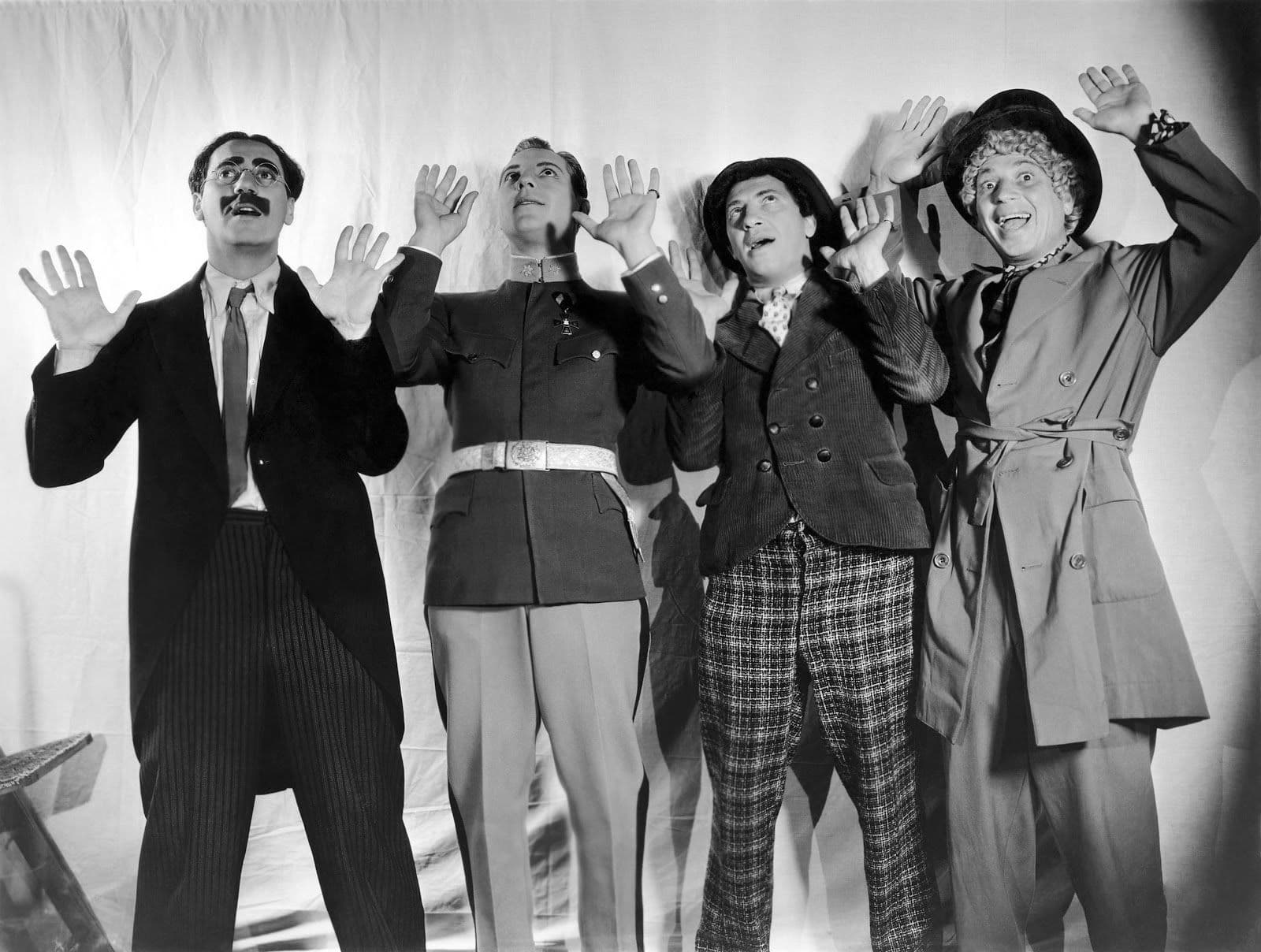
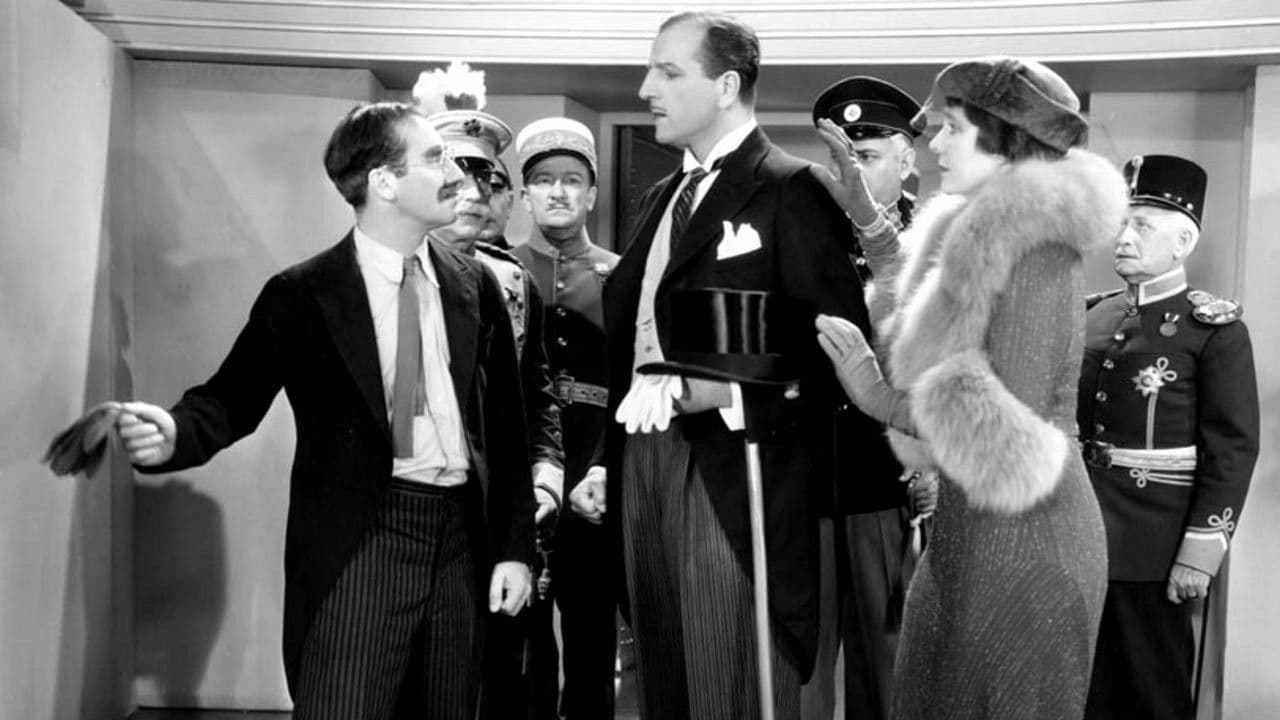
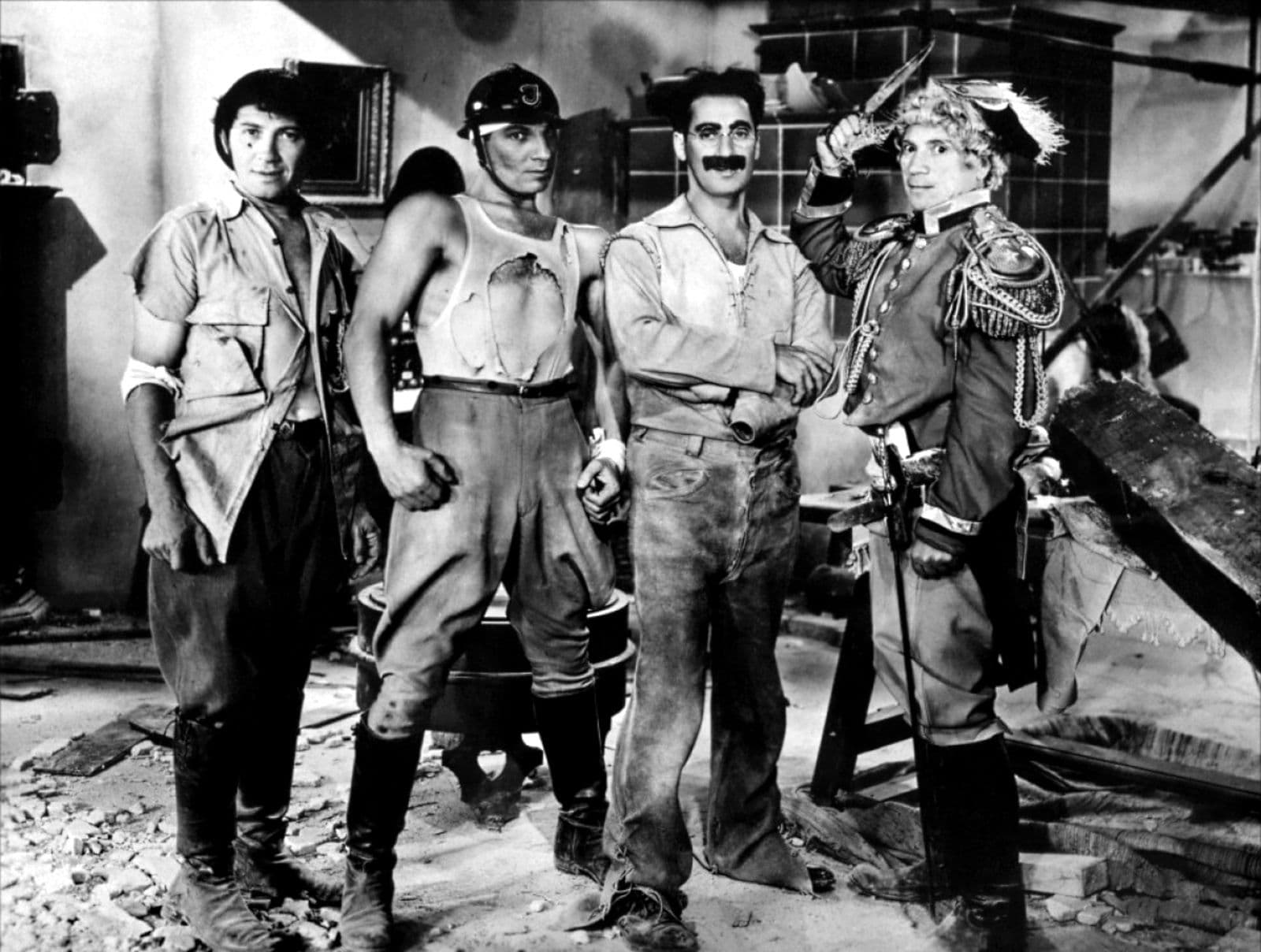
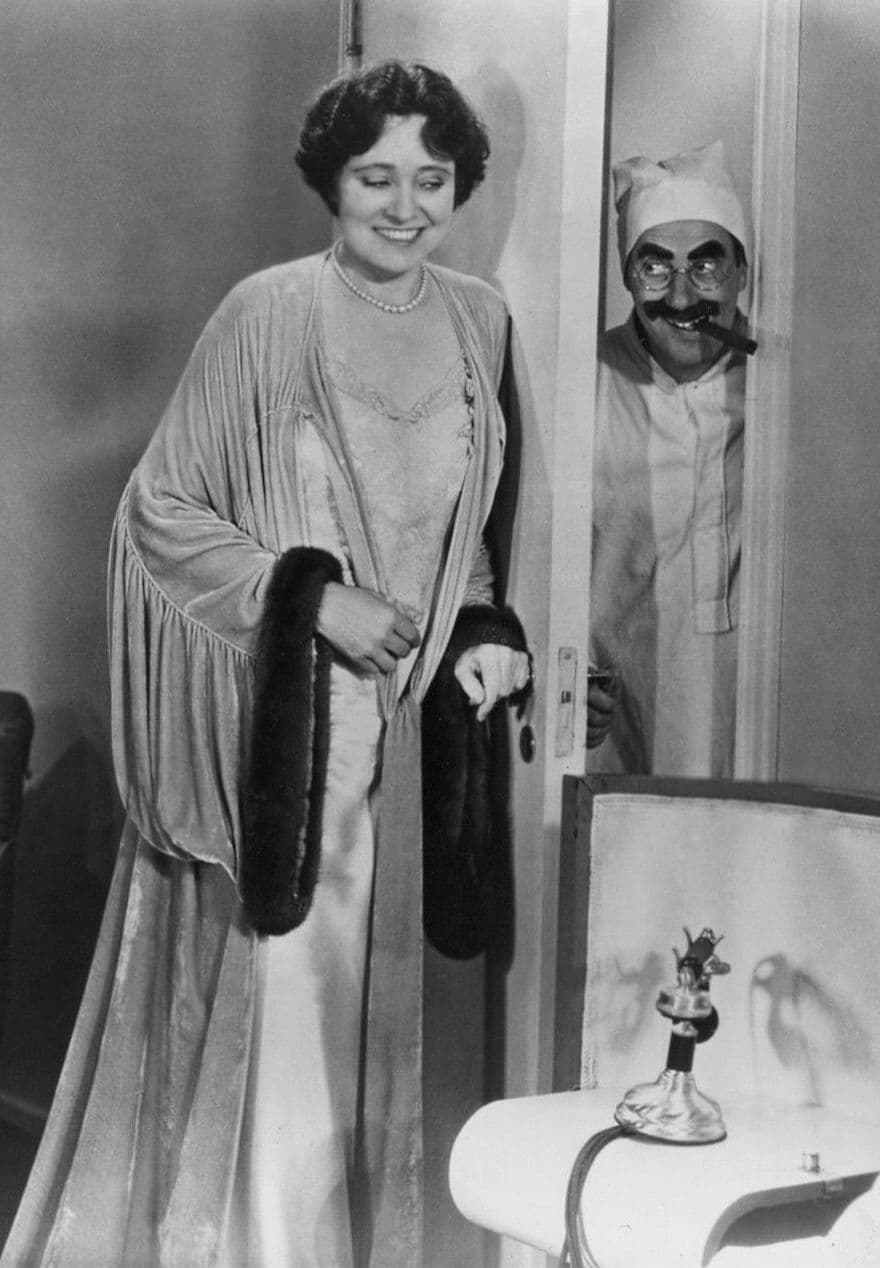
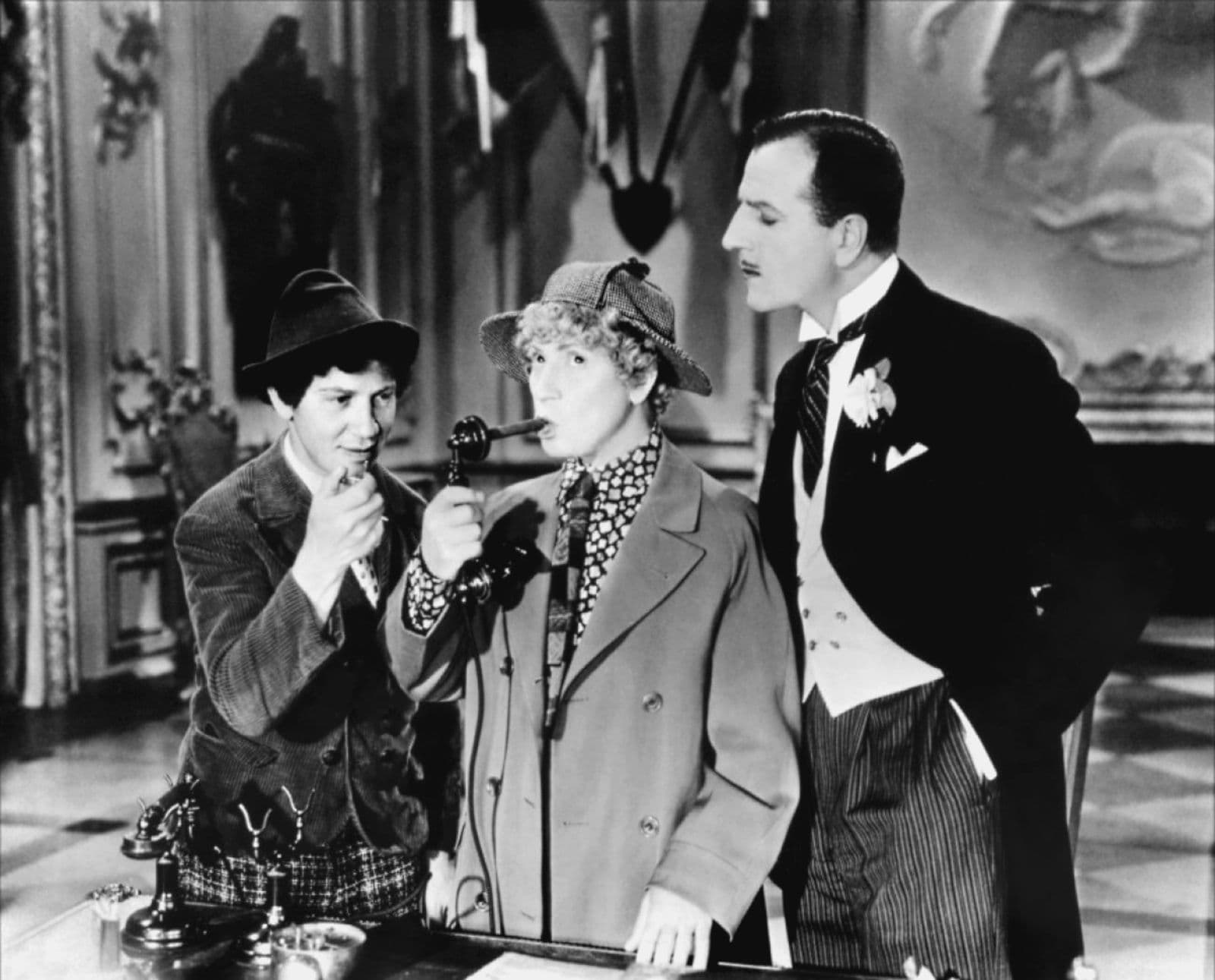
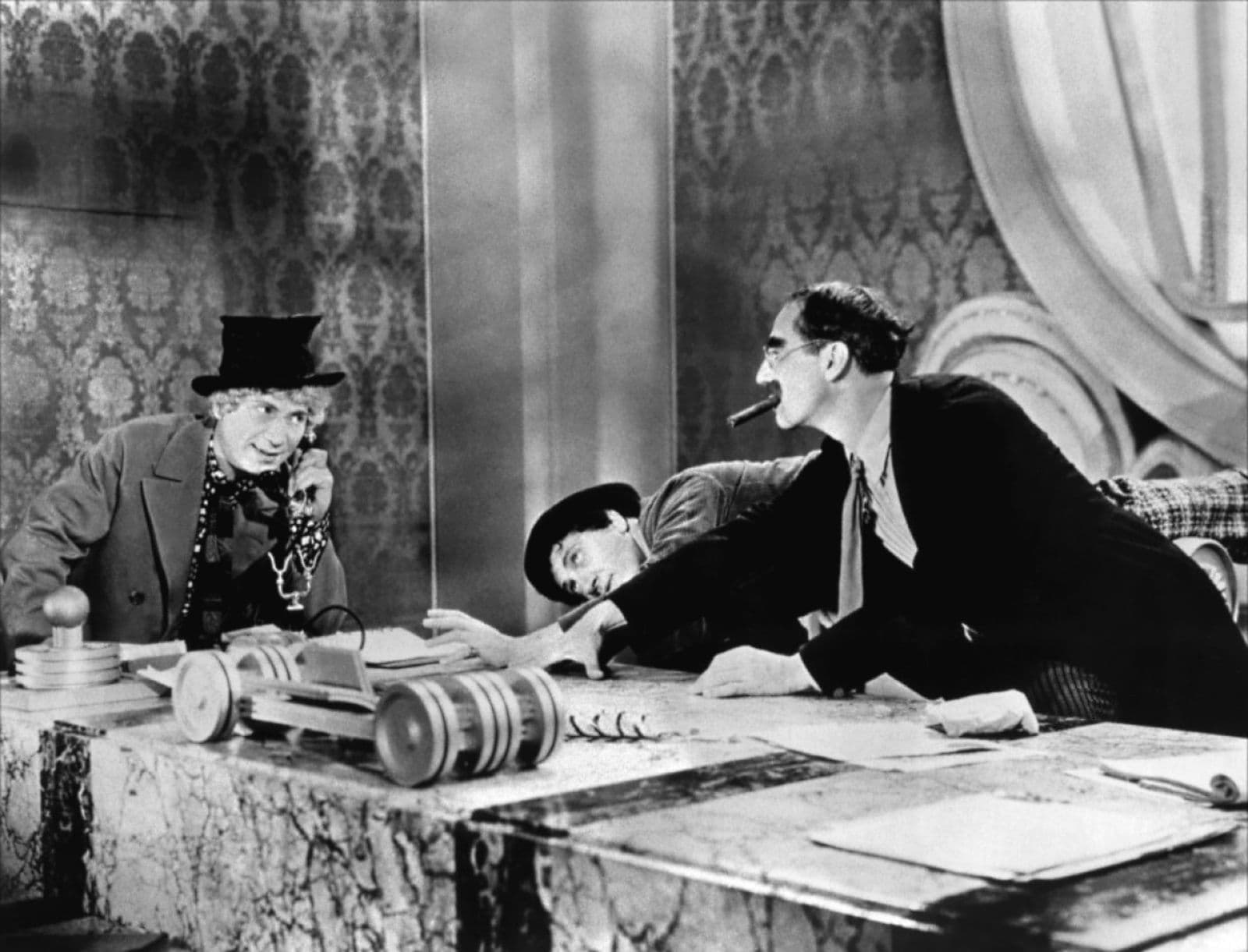
Featured Videos
Official Trailer
Comments
Loading comments...